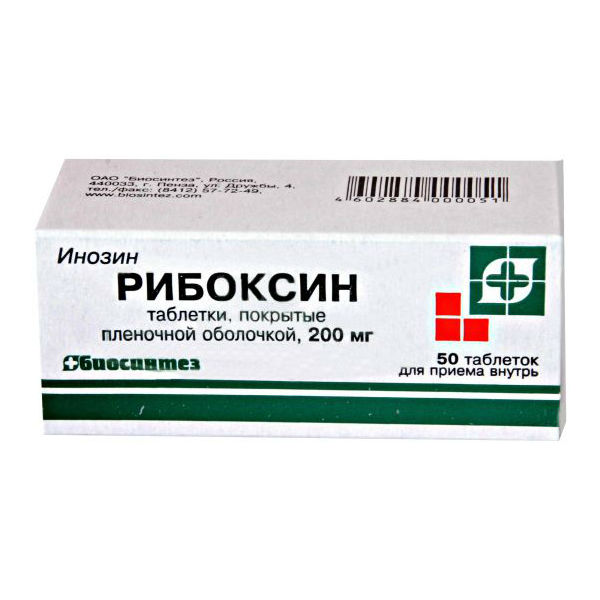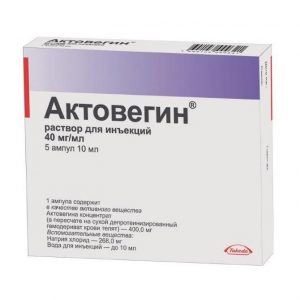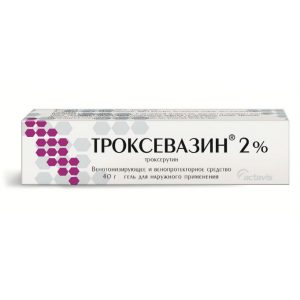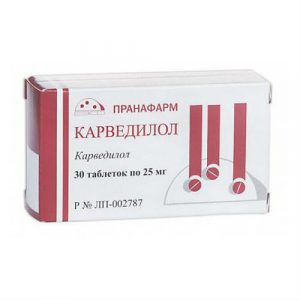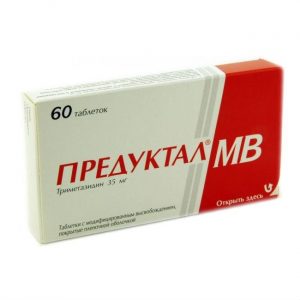Description
Release form
Tablets.
Packing
50 pcs.
Pharmacological action
Riboxin – a derivative (nucleoside) of purine – a precursor of ATP adenosine phosphate. Refers to a group of drugs that stimulate metabolic processes. It has antihypoxic and antiarrhythmic effects. Increases the energy balance of the myocardium, improves coronary circulation, prevents the effects of intraoperative renal ischemia. It is directly involved in the metabolism of glucose and contributes to the activation of metabolism in conditions of hypoxia and in the absence of ATP.
Activates the metabolism of pyruvic acid to ensure the normal process of tissue respiration, and also promotes the activation of xanthine dehydrogenase. It stimulates the synthesis of nucleotides, enhances the activity of some enzymes of the Krebs cycle. Penetrating into the cells, it has a positive effect on metabolic processes in the myocardium – it increases the force of contractions of the heart and contributes to a more complete relaxation of the myocardium in the diastole, as a result of which the stroke volume increases. The mechanism of antiarrhythmic action is not completely clear.
Reduces platelet aggregation, activates tissue regeneration (especially the myocardium and gastrointestinal mucosa).
Indications
Comprehensive treatment of myocardial infarction, coronary heart disease, heart rhythm disturbances caused by the use of cardiac glycosides, against the background of myocardial dystrophy after infectious diseases. Liver diseases (hepatitis, cirrhosis, fatty degeneration). Surgery on an isolated kidney (as a means of pharmacological protection when turning off blood circulation).
Contraindications
Hypersensitivity to the drug, gout, hyperuricemia, pregnancy, lactation, age under 18 years (efficacy and safety have not been established). Use with caution in renal failure.
Special instructions
Riboxin is not used for emergency correction of cardiac abnormalities.
Composition
1 tab. inosine – 200 mg
Dosage and administration
Inside, before meals. First, 0.2 g is prescribed 3-4 times a day, then within 2-3 days the dose is increased to 9.4 g 3-4 times a day. The course is 1-3 months.
Side effects
Allergic reactions: pruritus, skin hyperemia (the drug should be discontinued). Rarely: increased concentration of uric acid in the blood, exacerbation of gout (with prolonged use).
Drug interaction
When used as part of complex therapy, Riboxin helps increase the effectiveness of antiarrhythmic, antianginal and inotropic drugs.
Clinically significant interaction of Riboxin with drugs of other groups is not described.
Storage conditions
In a dry, dark place at a temperature of no higher than 25 ° C. Keep out of the reach of children.
The Expiration of
is 3 years.
pharmacy terms of prescription
Form of Treatment
tablets
